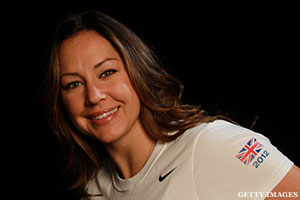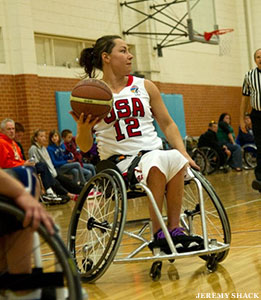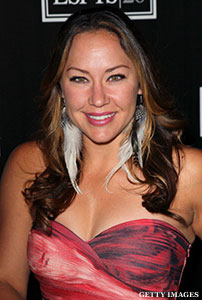In 2000, Alana Jane Nichols was a normal 17-year-old who liked to hang out with her friends. She was athletically gifted and spent a lot of time playing organized sports. She enjoyed impromptu snowboarding sessions and never shied away from new challenges. Nichols was often the only girl in the group but never had any trouble keeping up. It was who she was. It was what she did.

On Nov. 19, 2000, Nichols was snowboarding with friends in the back country of New Mexico, near her home in Farmington. They had gone all day trekking up mountain sides, and forging their way down, through fresh, uncharted snow. It was late in the day, and they had yet to take any real break to rest and refuel.
On their last run of the day, around 3:30 in the afternoon, Nichols had yet to attempt what she set out to do, a back flip on her snowboard. She had never tried one before, but knew she could do it. Even if she didn't land it, that was part of the process. She would get back up, and try it again.
The guys in front of her charged down the hill and successfully landed some sort of trick before watching Nichols attempt her maiden back flip. Nichols set off down the hill and hit the makeshift jump. While in mid-air, she over-rotated, causing her to land on her back. "I felt prepared, but looking back on it, it wasn't the best decision." Nichols said. "We were 17, we just didn't really think about it."
What Nichols didn't think about was what was underneath the snow. As it turns out, she landed on a bed of rocks. Lying there in the snow, Nichols immediately knew something was wrong. She couldn't feel her legs, and told her friends not to move her. While some of them quickly began the trek out of the woods to find help -- there was no cell phone service -- the rest were praying for her on every corner of her body, which brought her extreme comfort.
Wrapped up in her friends' coats, Nichols thought to herself, "I'm not processing; I'm confused; I can't move my legs." After more than an hour passed, she was medi-flighted to a nearby hospital, where she ultimately learned her fate.
Nichols' accident put her on a course to make history. Competing as a Paralympian, she became the first American woman to win gold medals in both the Summer and Winter Olympics. In Beijing in 2008, she helped the U.S. win the wheelchair basketball championship. In Vancouver in 2010, she won four medals, including two golds, in mono skiing.

The London Paralympics opened Wednesday, and Nichols will be looking for another gold in wheelchair basketball. She also has the 2014 Winter Olympics in Sochi on her mind already. It's the kind of success she has had in sports, beginning at an early age.
When Nichols was 9 months old, her father was the innocent and fatal victim of a drunk driver. Her then 24-year-old mother was left to raise three young children alone and deal with the aftermath of such tragedy. It's a task that many are unable to handle, and one that Nichols' mother struggled with mightily.
Fortunately for Nichols, maternal grandparents David and Joan Vilven lived nearby. When she was 2, her grandparents became her legal guardian, and by the time she was 13, they had adopted her. Joan was the one who introduced her to sports. "She was always very athletic," Joan said. "She did well in whatever she tried."
Nichols took a particular interest in softball and received several college scholarship offers. But when Nichols arrived at the hospital, she immediately underwent an eight-hour surgery in attempt to repair the damage caused by the accident. When she woke up, doctors wasted little time informing her of her injuries, and of the road to improbable recovery. "You are paralyzed from the waist down," one doctor said, "and whatever feeling and mobility you regain will be determined during the next two years. After that, additional rehab will be meaningless."
When Nichols landed on those rocks that day, she broke her back in three different places and shattered her T11 vertebrae.

Still groggy from heavy sedation and thinking like a 17-year-old, Nichols said her first reaction was "well all right, I've got two years to get it all back." She immediately told her family and friends that it would all blow over, and that she'd be walking by Christmas. "I was a softball player, and headed to college on an athletic scholarship," she said. "There's no way I was giving all of that up."
After spending nearly two weeks in the hospital, Nichols began the long road to recovery. Just one semester away from graduation, Nichols set her focus on walking. Although her softball scholarship offer were gone, Nichols was undeterred. She was going to college, play softball and most importantly land that back flip on her snowboard. It was who she was. It was what she did.
With recovery and redemption on her mind, Nichols worked hard in her rehabilitation and studies. She graduated on time from high school, with the help of her family, friends and teachers, and enrolled at University of New Mexico, where her older sister, Jovan Heusser, was already a student.
When Nichols arrived on campus at New Mexico, she not only had to learn how to be a freshman, but also how to live on her own for the first time. "I had the help of many, and now I was all alone, or at least it felt that way at times," she said.
Luckily for Nichols, Jovan was nearby. "She was a big help. I couldn't have done it without her," Nichols said.
One night during her freshman year in college, Nichols was in a gym where she saw something that she had never seen before, wheelchair basketball.
"I had this massive wheelchair with mountain bike tires, and I wasn't wearing any shoes," Nichols said. "I sat there and watched for a few minutes and then one of the guys, they were all guys, wheeled over and asked me to if I wanted to join them."

Nichols, taken back by the invitation thought to herself, "This is not who I am. This is not what I do. I'm a snowboarder; a softball player, not a wheelchair basketball player." After some thought, reluctantly, she wheeled herself out onto the court.
"Take a shot," someone said. It wasn't until that moment that Nichols realized that wheelchair basketball players aren't cut any slack, and they play under a regulation 10-foot rim. "I went to shoot at the rim, and couldn't even hit it, let alone make a basket," Nichols said.
Shot after shot, she hoisted the ball into the air as hard as she could, and each time, it returned to the court without ever hitting the rim. "It wasn't even close," she said.
Dejected, she left that night wrestling with her new reality that she might never walk again, and that her athletic prowess was now a thing of the past. On her way out she was advised that they play every Wednesday. But it didn't matter, because Nichols wasn't going back.
During the next week, Nichols continued to struggle with her life's course, and even considered dropping out of school. Then, upon reflection, it hit her: "No matter what happens, this is who I am. This is what I want to do." The following Wednesday, Nichols and her clunky chair returned to the gym, and her life would never be the same.
After a year-and-a-half of developing and improving as a wheelchair basketball player, Nichols became good enough to receive an offer to join the University of Arizona women's team.
At the end of her sophomore year, Nichols had a decision to make. She would either move to Arizona and pursue organized wheelchair basketball at a scholarship level, or stay at New Mexico and graduate. "One of the things I was struggling with was my independence," she said. "I had never really lived alone after my accident, and had yet to drive a car."

What helped Nichols reach her decision was the unexpected and kind generosity of one of her friend's parents. They gave Nichols $8,000 to attend Shake-A-Leg Camp in Rhode Island. Shake-A-Leg is designed to boost confidence in those with disabilities. "It was a wonderful gesture, and a life changing experience," Nichols said. "It gave me the confidence to move to Arizona, which is exactly what I decided to do while I was at Shake-A-Leg."
While at Arizona, Nichols was invited to try out for U.S. women's national wheelchair basketball team. "I remember asking my teammates what they thought, and they uniformly told me I had no shot, but to go for it anyway," Nichols said with a smile.
Nichols earned an alternate spot on the 2004 roster. She didn't get travel to Athens but had the chance to train with the team, which helped her prepare for 2008.
After graduating Arizona, Nichols continued to play collegiately at University of Alabama where she earned a Master's degree in kinesiology while training with the best in her sport to gear up for Beijing. But while most of her teammates were focused on basketball, Nichols was quietly developing another plan.
About two months before the games in Beijing, Nichols visited Erik Petersen, competition director at the National Sports Center for the Disabled in Winter Park, Colo.
"Alana told me that after they return from Beijing, she wanted me to prepare her for the Vancouver Paralympics in 2010, as a downhill skier," Petersen said. "I told her she was dreaming, but that we'd give it a shot."
Nichols and her basketball teammates took Paralympic gold in China, and shortly after she returned to the United States, she paid Petersen a visit. "I hadn't done much skiing since my accident, but I wasn't going to let that deter me," Nichols said. "I was going to ski in Vancouver."
She moved to Denver full time to demonstrate her commitment. Petersen saw it differently. Developing a mono-skier from the start into an Olympic athlete in two years was unheard of. "It takes years and years to master," he said.

The first day Petersen took Nichols up on the mountain and told her to head down. It was brutal. "She probably fell 20 times that day; and that doesn't include all of the falls that she took misloading the chair," Petersen said. But he knew then that Nichols was just the type of person who could make it. "She got worked, but she was all in."
Having only seriously started skiing in late September 2008, Nichols quickly rose to an elite level. During her first season of competition in February 2009, Nichols won her first race, defeating the reigning Paralympic gold medal champion Laurie Stephens in the super-G at a North American Cup event. Over the next year, Nichols continued to excel in skiing, and went on to win a season long championship in the downhill, as part of the IPC Alpine World Cup.
Life was great. She was a reigning Paralympic Gold medalist in basketball and a rising star in mono-skiing. She qualified for the 2010 Paralympic Games in Vancouver, and was readying herself to become the first woman in United States history to win gold medals in both the summer and winter Olympics. Her life was back on track, and at that stage, couldn't have been any better.
In July 2009, Nichols was continuing her Paralympics training at Mt. Hood, Ore. It was a normal day and things were going well.
Then, just like it had with her father, tragedy struck. Nichols' brother was murdered.
"That was the most devastating life experience," Nichols said. "All of a sudden, skiing didn't matter anymore, I didn't care about anything. If I could go back and experience the pain of breaking my back, and my brother would still be alive, I'd take the pain of breaking my back every time."

With the Winter Olympics less than nine months away, Nichols didn't know what to do. After a few weeks, her family all left Denver to return to their work and home lives, and to begin the recovery process. This left Nichols all alone with no direction in her life. "I didn't want to start skiing again," Nichols said. "I didn't want it to appear as if I had gotten over everything, and was ready to ski." After thinking things through, Nichols decided that is exactly what she would do, return to skiing as her therapy and recovery mechanism.
Entering the 2010 Vancouver Games, Nichols was still relatively new to the sport of mono-skiing, but she was no longer under anyone's radar. She did well in her qualifying rounds of the downhill and giant slalom, and found herself in gold medal contention in each event going into her final runs. As she sat at the top of the hill for her final run in the giant slalom, Nichols experienced calm that until that moment, she had never felt. "My brother was there, it was undeniable," Nichols said.
Nichols shot out the gate, down the hill, and finished a flawless run in just over two minutes and fifty-three seconds. When she crossed the finish line, and realized she had just won gold, she began sobbing. "People thought I was crying because I had won the gold medal," Nichols said. "I was crying because it was an amazing moment that I got to share with my brother."

Nichols went on to win three more medals during the Vancouver games, including a second gold in the downhill. Since competing in Vancouver, Nichols has enjoyed great peace and success in her life. She happily resides in Denver and continues to compete in basketball and skiing at a high level. Nichols has been nominated three times for an ESPY in the Best Female Athlete with a Disability category, or as she prefers to call it, the Best Female with an Extraordinary Ability.
She is honored to speak at sponsor events and serve as an Ambassador to the U.S. Paralympics. The way Nichols sees it, "It's pretty cool to bring some light into our family after so much tragedy."
She is confident she'll overcome whatever obstacles she might face in London and Sochi. After all, if anyone knows about turning tragedy into triumph, and overcoming adversity, it's Nichols. It is who she is. It is what she does.
-- Follow Rob Sievers on Twitter @SportsEsquire or email him at sportsesquire@gmail.com.








